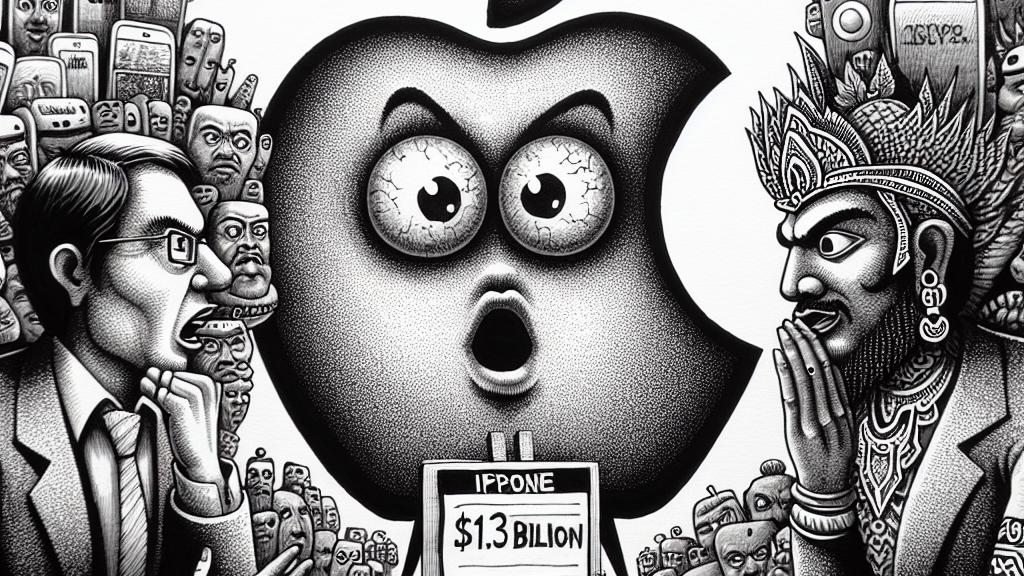Apple Offers $1.34 Billion to End iPhone Ban in Indonesia
Overview
- Apple unveils a bold $1.34 billion investment proposal to lift the iPhone ban in Indonesia.
- This massive offer aims to fulfill strict local content requirements set by the Indonesian government.
- With this investment, Indonesia hopes to enhance economic growth and create numerous job opportunities.

Understanding the iPhone Ban in Indonesia
Let's break down the situation surrounding Apple's iPhone 16 ban in Indonesia. This ban stems from Apple's failure to adhere to local content regulations, which require that smartphone makers utilize at least 40% domestic material in their products. To put this into perspective, Apple initially made an investment offer of merely $10 million, and even when they raised it to $100 million, it still fell short of Indonesia's expectations. The government was looking for a serious commitment, and thus, Apple dramatically raised the stakes with a jaw-dropping $1.34 billion proposal. This not only indicates Apple's acknowledgment of the Indonesian market's potential but also highlights the stakes involved in gaining access to Southeast Asia’s largest economy.
The Ripple Effect of Apple's Investment
So, what could this remarkable investment mean for Indonesia? The implications can be enormous. If Apple realizes this proposal and establishes local manufacturing facilities, akin to what rivals like Samsung and Xiaomi have done, the impact could resonate across various sectors. Imagine the surge in job creation—from assembly line positions to skilled technician roles—encouraging local professionals and boosting the economy. Moreover, by fostering a local supply chain, Apple would not only align itself with government regulations but also enhance Indonesia’s position in global tech manufacturing. With President Prabowo Subianto aspiring for an impressive 8% economic growth, this investment might just be the catalyst needed to transform that ambitious vision into reality.
Strategic Importance and Future Outlook
Looking beyond immediate benefits, Apple’s decision to invest heavily in Indonesia has broader strategic implications. The nation boasts a youthful and increasingly tech-savvy population, with more than 350 million active mobile devices already circulating. This presents a prime opportunity for Apple, especially as consumer demand continues to rise. If the company can successfully navigate the regulatory landscape and meet local sourcing requirements, they can create a solid foothold in an area ripe for technological innovation and growth. Think about the possibilities: Indonesia could become a central hub in Apple's global supply chain, fostering technological advancements that will benefit both the company and the nation. In essence, if Apple commits effectively and innovatively, we could witness a transformative era for Indonesia's economy, turning challenges into opportunities and setting a precedent for foreign investments in the region.

Loading...